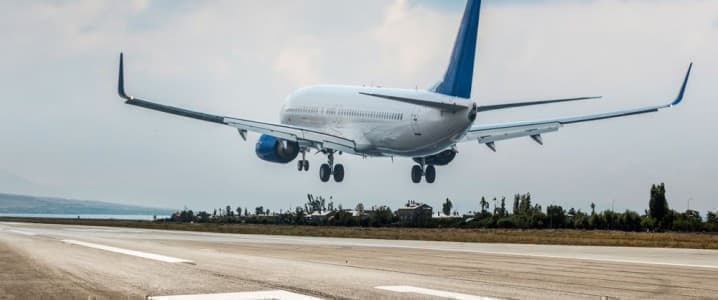The battle to decarbonize the aviation industry
With news that France is banning short-haul flights, many will be wondering how other countries plan to decarbonize their aviation sectors. France has taken the first steps to changing commercial flying habits in line with the decarbonization of aviation, but other governments are focusing on other ways to reduce emissions caused by flying. Several state powers and private companies are investing heavily in low-carbon aviation fuels, while others are focused on providing immediate, short-term solutions through carbon offset schemes.
Before the pandemic, in 2019, the aviation industry contributed around one billion tonnes of CO2 emissions, accounting for 3 percent of the total global emissions. Despite its huge impact on the environment, the demand for air travel continues to grow, with governments doing little to curb the trend.
France announced in May that it would be banning public internal flights between French destinations where there is an option of a train journey of under 2 hours and 30 minutes. This was hailed by transport minister Clément Beaune as “an essential step” in reducing the country’s greenhouse gas emissions. There is an extensive network of high-speed trains in France, allowing travelers to opt for rail travel as an alternative to flying in many cases.
Only certain flight routes, such as flights between Paris-Orly and cities like Bordeaux, Nantes, and Lyon will be affected, with no effect on connecting flights. The move has prompted further scrutiny over the use of private jets for journeys. It has also encouraged environmental organizations to ask what actions other governments are taking to decarbonize aviation.
While this may not seem like a major step in decarbonization, given the short distance of the journey involved, it could provide a blueprint for other countries to replicate and expand upon. If train travel becomes the norm, in countries where this is possible, it could lead to the establishment of more routes and high-speed rail options, leading to the cutting of more short-haul flight routes.
Despite optimism around this move, it seems that the U.S. is unlikely to follow in France’s footsteps. While Dan Rutherford, the program director at the International Council on Clean Transportation, believes that replacing flights of under 500 miles with high-speed rail could reduce emissions, the government would face a multitude of hurdles to make this happen. Half of the U.S. domestic air travel market consisted of short-haul flights in 2019. In addition, car travel continues to be far more popular than rail due to the limited availability of high-speed train links. Passenger rail in the U.S. continues to lag behind the rest of the world. Airlines also gain a high proportion of their revenues from domestic flights, meaning they would likely fight the government on any decision to curb short-haul travel.
However, the U.S. government, and several other world powers, are not overlooking aviation decarbonization completely, as they pump huge amounts of funding into the research and development of low-carbon aviation fuels. And thanks to that investment, many fuels have already been certified for use in aircraft. Sustainable Aviation Fuels, or SAF, are biofuels, made from different feedstocks, such as crops and municipal waste. For use in existing planes, these SAF are blended up to 50 percent conventional jet fuel, a figure that could shift in favor of biofuels as research and development progress.
One of the biggest limitations to the use of SAF is its high cost. These biofuels are typically around eight times more expensive than traditional jet fuel, according to research from Shell and Deloitte on the current state of the aviation sector. There is also a significant lack of cohesion across different state governments on the regulations around emissions reduction and the use of SAF.
Due to the complexities of using SAF, many governments have so far opted to introduce carbon offset schemes, aiming to mitigate emissions without cutting flights. Several airlines around the world offer their customers to pay to opt-in to a carbon offset program, through initiatives such as reforestation and investment in renewable energy projects. However, many scientists continue to be skeptical about the effectiveness of these types of schemes, suggesting they are merely a short-term response to the high emissions of the aviation industry, rather than a long-term solution.
The World Bank acknowledges that the air transport sector is a vital part of economic growth and development, and as demand for air travel continues to grow, the decarbonization of aviation is key to achieving climate goals by the mid-century. But there is no single agreed-upon way to achieve this decarbonization. While some countries may cut domestic flights, other governments are opting to invest in making aviation cleaner, without reducing flight routes. Realistically, the answer is probably going to be a mixture of the two, with many short-haul routes to be replaced with cleaner, high-speed rail alternatives and SAF used for mid- and long-haul flights.







